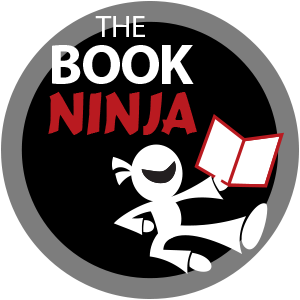“Self-publishing.” A term often confused, skewed by greedy vanity publishing companies, and a stigma to the entire publishing industry. What do you think when you hear, “I am self-published?”
That author wasn’t good enough to get a ‘real’ publisher.
Their book probably wasn’t edited.
Their cover design is horrible.
They just wanted a quick fix, an easy road to get their book out.
This is only a smidgen of the stigma true independent publishers have to fight from those in the “self-publishing” industry. The fact is, any company you pay to publish your book, who pays you royalties, or who puts their logo on the back of your book – any company that handles the distribution of your book for you that is not a real book distributor – is not a self-publishing company. They are vanity, plain and simple.
“Kiss of Death”
Vanity publishing companies are known for poor quality, un-edited books that might be lucky enough to sell 50 copies. They make their money off the author one way or another, either up front with fee-based “packages” or by taking a huge chunk of the profits of each book sold, often pricing the book out of market range. Vanity companies give an author a book with their name on it, are often disguised as cheap or a good deal, but cut off all marketability to brick and mortar stores, as well as other marketing options.
Even worse, as my friend Sue Collier (co-author of The Complete Guide to Self-Publishing, 5th Edition) says, “And once you’ve got the Outskirts Press—or others of their ilk—imprint on your book, it’s like the kiss of death in the publishing world.”
Kiss of death? Really? Yes, really. Once you have identified your name with any of these quick-fix, high-cost, low-quality vanity publishers, traditional publishers won’t look at you twice. To them, you’re obviously not willing to do what it takes to make your book a success. There are plenty of authors in the world, many of them very good, so traditional publishers don’t need to waste their time with those who publish via vanity.
Traditional publishers want authors with a following, a strong marketing plan and the drive to succeed beyond just uploading some Word files to a cheap printer or vanity publisher. If your goal is to someday get the traditional name on your book, you’d better run in the other direction as fast as you can – away from anything that even remotely resembles “vanity.”
So What about True Indie Publishing?
Indie is short for “independent.” Independent means just that – you, your name, your reputation, your quality. Indie means you find the editor, designer, printer and distributor for your book. You file your own copyright, Library of Congress numbers and everything is registered in your name. You handle everything from start to finish. You have total control, the final say, on every part of the process. You keep 100% of the proceeds from book sales. And best of all, YOU control the decision to be traditionally published should a publisher become interested in your Indie-published book.
Does it really work? Yes it does, and I call it “Two-Track Publishing.” Agents and publishers actually look for independently published books that have a strong platform and have the possibility of big success. Here are a few couple studies for you:
Carrie Wilkerson, The Barefoot Executive: Independently published her first book, The Barefoot Executive, and Thomas Nelson Publishers bought the rights to re-publish that book. Her now traditionally published book should be released in 2011.
Dr. Daisy Sutherland, author of Dr. Mommy’s Life Lessons, was “stalked” online by a publicist for Charisma Media and is now under contract for her next book for busy moms slated for release in 2012. She also received a higher than average advance for first-time author’s non-fiction book.
They are real-life examples of the power of independent publishing.
Just in case the above authors are not “real” enough for you, how about these titles:
The Elements of Style by Strunk and White
Eragon by Christopher Paolini
The Christmas Box by Richard Paul Evans
The Joy of Cooking by Irma Rombauer
Life’s Little Instruction Book by H. Jackson Brown
And let’s not forget the Chicken Soup for the Soul series that was turned down by multiple traditional publishers who claimed it couldn’t possibly sell, but which led to the creation of Hansen House, an independent publisher started by co-author Mark Victor Hansen.
Don’t let vanity publishers fool you. All of them tout the above titles as being “self-published.” But they were not self-published through a vanity company. You will not see the same results if you choose to publish through a vanity publisher. These results only come through hard work and independent publishing.
Please share your comments, thoughts and questions below!
Photo Credit: Shutterstock, daLy


Thank you so much for this information! There is hope! I was just about to publish with Westbow Press which I was informed was a vanity company. I did however paid them money and they have not or are unwilling to give me my money back. My book and writing means a lot to me and I want to do everything the right way to secure a future traditional contract. Many people don’t know about this. I will gladly share your blog!!! I know I can and will make it! Thank you again for this information. God Bless!
Jay – yes, even if you use a vanity publisher for an eBook only version of your book you run the same risks. And why not publish the eBook under your own name? There’s no reason you should have to share the profits of your sales with a vanity publisher. 🙂
Kristen,
Thank you for such a well written and insightful article! I had not considered Indie publishing before now. I am wondering if the same principles would apply if I chose to strictly publish my novel as an eBook. I would love to know your thoughts.
Regards and well wishes,
R. Jay Hahn